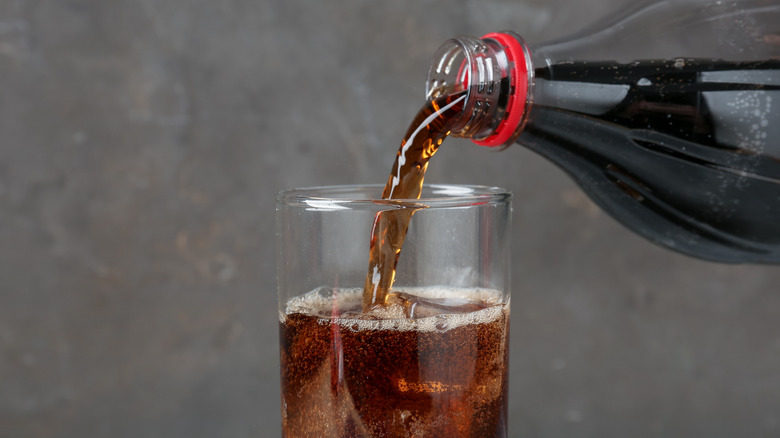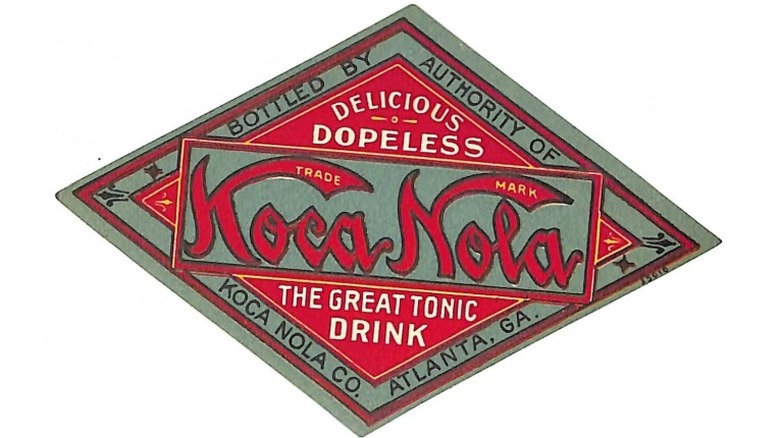The Vintage Coca-Cola Knockoff That Was Sued Into Bankruptcy
We may receive a commission on purchases made from links.
When a major, paradigm-shifting success occurs in a given field, especially something like business, you have two options if you want to compete. The first is to focus on your own path, refining your craft without being overly reactive; the second is to cheerfully and flagrantly rip off said success in hopes that some of it (and the money that comes with it) rubs off on you. Such was the case with a competitor to Coca-Cola that surfaced in the early 20th century before being sued into oblivion: the perfectly named Koca Nola.
Just take a minute to savor the beautiful ridiculousness of that name. If you challenged the world's least creative high school student to come up with a name for a Coca-Cola knockoff, "Koca Nola" would be one of the first things they would say. It's hard to believe that it was ever real, and yet it was — and it was borne from a pharmacist's grudge. A man named Thomas Austin, who had made his fortune in coal, opened a pharmacy in Atlanta, but was annoyed by the fact that most of his customers only came in for Coca-Cola. He wanted to be more than just a middleman for Coke, so he put his considerable resources to use, crafting his own take on cola and bottling it as Koca Nola.
Koca Nola's business model worked -- until it didn't
As low-rent as the whole enterprise may sound a century later, Koca Nola actually enjoyed some success with its business model. At the time, the bottles for Coca-Cola and Koca Nola looked pretty much identical — especially if you didn't know how to read, which a not-insignificant number of Americans in those days couldn't do. They also antagonized their more famous rival in other ways (despite the fact that the Coca-Cola lawsuits started early and didn't ever stop); unlike Coca-Cola's famously secret formula, Koca Nola printed its recipe right on the label, in a lovely bit of corporate passive-aggression.
But of course, this couldn't last forever. Coca-Cola's continued lawsuits chipped away at Koca Nola's resources, and the bad news kept coming: Coca-Cola introduced their now-trademark concave bottle shape, which helped differentiate the two once and for all, and Koca Nola got into trouble with the federal government (which had just passed the Pure Food and Drug Act of 1906, as part of the Upton Sinclair-spurred wave of food safety that eventually led to the creation of the FDA) for lying about the cocaine content in their beverage. (Coca-Cola had already taken the cocaine out of their recipe by then.) Koca Nola shut down in 1918, and Coca-Cola was free to go to war with Pepsi.

